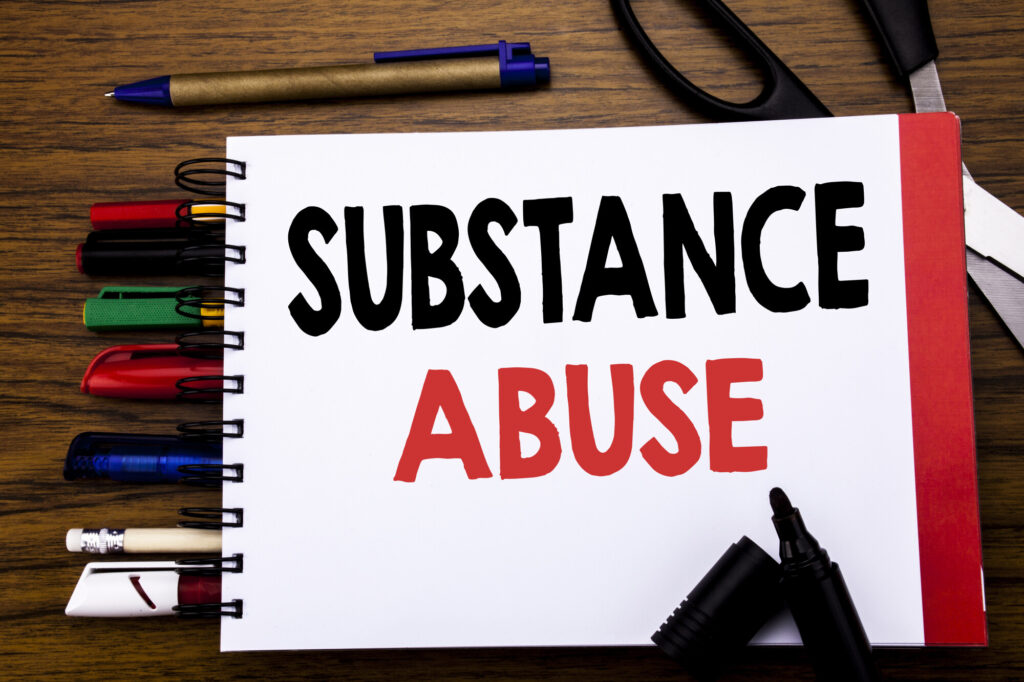Substance use disorders directly affect around 20 million people in the United States. They can also have a huge impact on the friends and family of those battling addiction. So, if you or a loved one is struggling with substance abuse, you are not alone. Getting professional support can help you understand and regain control over your substance abuse problem. However, to do this, it is important to find the right kind of treatment for you. This is where understanding different types of substance abuse can help.
So what are the different types of addiction, how can they impact your life, and how can you treat them? Read on to find out everything you need to know.
Alcohol Addiction
More than 85% of people in America will drink alcohol at some point in their lives. And having the occasional drink with dinner or when socializing is no bad thing.
However, the normalization of drinking has made it easier for a lot of people to slip into binge drinking and alcohol addiction. When this happens, you may find yourself becoming dependent on alcohol.
This can have an impact on your ability to work and maintain a normal daily life. Or it may impact your personal relationships. Alcohol addiction can also damage your health and may make you vulnerable in dangerous situations.
Recovering from alcohol addiction can be especially challenging because alcohol is everywhere. Fortunately, an outpatient alcohol program and cognitive behavioral therapy for alcohol abuse can help you understand your relationship with alcohol better.
In a safe environment, you will learn your addiction triggers and create healthy boundaries around drinking. So you can return to normal life with the tools you need to manage your addiction.
Stimulant Addiction
Stimulant addiction involves dependency on drugs that have a stimulating effect on your body.
These often include cocaine, amphetamines, and ecstasy. However, a number of prescription drugs, such as Ritalin and Vyvanse, also have stimulant effects. So addiction to stimulants doesn’t mean that you are addicted to illegal drugs.
These drugs can be addictive in two ways. Your body can quickly become dependent on their physical effects. However, you can also become psychologically dependent on these types of drugs.
As a result, you usually have to take a two-pronged approach to addiction recovery.
Most clinics will offer a medically-assisted detox alongside inpatient or outpatient programs. This helps you manage the symptoms of withdrawal while you find ways to manage the psychological impact of your addiction.
Addiction to Hallucinogens
Hallucinogenic drugs tend to be less physically addictive than other drugs, such as stimulants or opioids. However, a lot of people still become dependent on them and (most significantly) the effects that they have.
Hallucinogenic drugs include LSD, mushrooms, ketamine, and cannabis. You may also hear people refer to these as psychedelic drugs.
Using these drugs regularly can make it very difficult to engage with daily life in the same way. Over time, they can also have a big impact on your mental health. For example, they increase your likelihood of developing anxiety, depression, and paranoia.
Because of this, it can help to look for a rehab center that offers mental health support alongside its addiction recovery programs. This is where intensive outpatient treatment can help.
Opioid Addiction
Opioids are by far the most addictive substances in America at the moment. These drugs include heroin, oxycodone, methadone, and fentanyl, to name a few.
Opioid addiction does not always mean that you have been using drugs illegally. In fact, a lot of people develop opioid addiction after using these strong prescription drugs to manage serious pain.
These drugs affect your brain chemistry and trigger the release of endorphins. As a result, you can become dependent on them in a very short space of time and your tolerance for them quickly increases.
Like stimulant addiction, recovering from an opioid addiction usually requires medical assistance. Most people need monitoring while they are withdrawing from opioid use, and going cold turkey can be dangerous. Because of this, most doctors recommend inpatient treatment for opioid addictions.
Counseling and cognitive behavioral therapy for addiction can work alongside this to help you manage the psychological symptoms.
Sedative Addiction
Sedative drugs might not be the first thing you think of when it comes to addiction. However, they are commonly abused in the United States.
In fact, people often underestimate the addictive nature of these drugs because doctors prescribe them. For example, you may take sedative drugs to manage stress and anxiety. This can include barbiturates, GHB, and Ambien.
You may find that you are taking these drugs more regularly than you would like. Or you might find that you have to significantly increase your dosage of them as your tolerance builds up.
In that case, it is worth having a conversation about your sedative use with your doctor. They may recommend reducing your dose or taking a break. If you feel uneasy about that then, it is a good idea to seek addiction support.
This can be nerve-wracking, especially if you have been using sedatives to manage mental health conditions. Rehab recovery centers can offer support in managing your mental health while you tackle your addiction. This will help you can handle the psychological impact of withdrawing while coming to terms with your addiction.
Treatment Options For Different Types of Substance Abuse
If you are ready to start tackling your addiction then well done, you have taken a huge step on the road to recovery! This can be an overwhelming time, so it is important to reach out for support from loved ones and healthcare professionals.
Rehab centers offer specialized support with addiction recovery and have a wealth of resources available for you to use. This includes:
- Medically-assisted detox programs
- Cognitive behavioral therapy for alcohol and drug abuse
- Support with managing your withdrawal symptoms
- Mental health support
- Counseling from trained addiction specialists
- Group counseling and counseling for your loved ones
- Accommodation while you recover
- A range of expert staff who have experience supporting addiction recovery
Most centers use a combination of these resources in their programs. However, before you start Googling “intensive outpatient program near me” you need to understand how each program works. So let’s take a closer look at some of the programs on offer at rehab centers in America.
Inpatient Programs
Inpatient treatment provides access to all of the resources that a rehab center has to offer.
During this time, you will stay at the rehab center itself, although your friends and family will be allowed to visit. Most residential stays last between one month and three months. This depends a lot on the severity of your addiction and the rate of your recovery.
These programs can be useful for people tackling severe addiction or who need medical assistance.
You may also choose an inpatient stay if you do not have a safe and stable environment to stay in while recovering. Some people prefer inpatient programs as they allow time and space during recovery. So, for example, if you have children, you can recover away from the family home.
Outpatient Programs
Outpatient treatment also gives you access to your rehab center’s resources and facilities.
However, during your program, you will stay at home or with a loved one. You will regularly attend appointments at the center for your treatment.
Some people prefer this option as it allows them to maintain a balance with their life outside of rehab. This can also make transitioning back into daily life easier once your program has finished.
Intensive Outpatient Programs
As the name suggests, intensive outpatient programs provide more contact time for the people on them. Usually, you will attend appointments at your rehab center every day, even on the weekends.
Although you live at home, these programs provide more intensive support during your recovery. This can be invaluable, especially in the early stages of addiction recovery.
Often, intensive outpatient programs combine addiction recovery with specialist mental health support. So they are usually recommended for people with pre-existing mental health conditions.
Get Support With Different Types of Addiction Today
There are plenty of different types of substance abuse, and each of these can have a huge impact on your life. They can make it difficult to work, have financial stability, and maintain personal friendships. However, if you are battling addiction, you are not alone.
Finding the right addiction recovery program for you can provide valuable support for you and your loved ones. This can also increase your chances of managing your addiction successfully.
If you are looking for an outpatient program or substance use disorder treatment, get in touch with the New Life Recovery Center today. We’re here to help.




